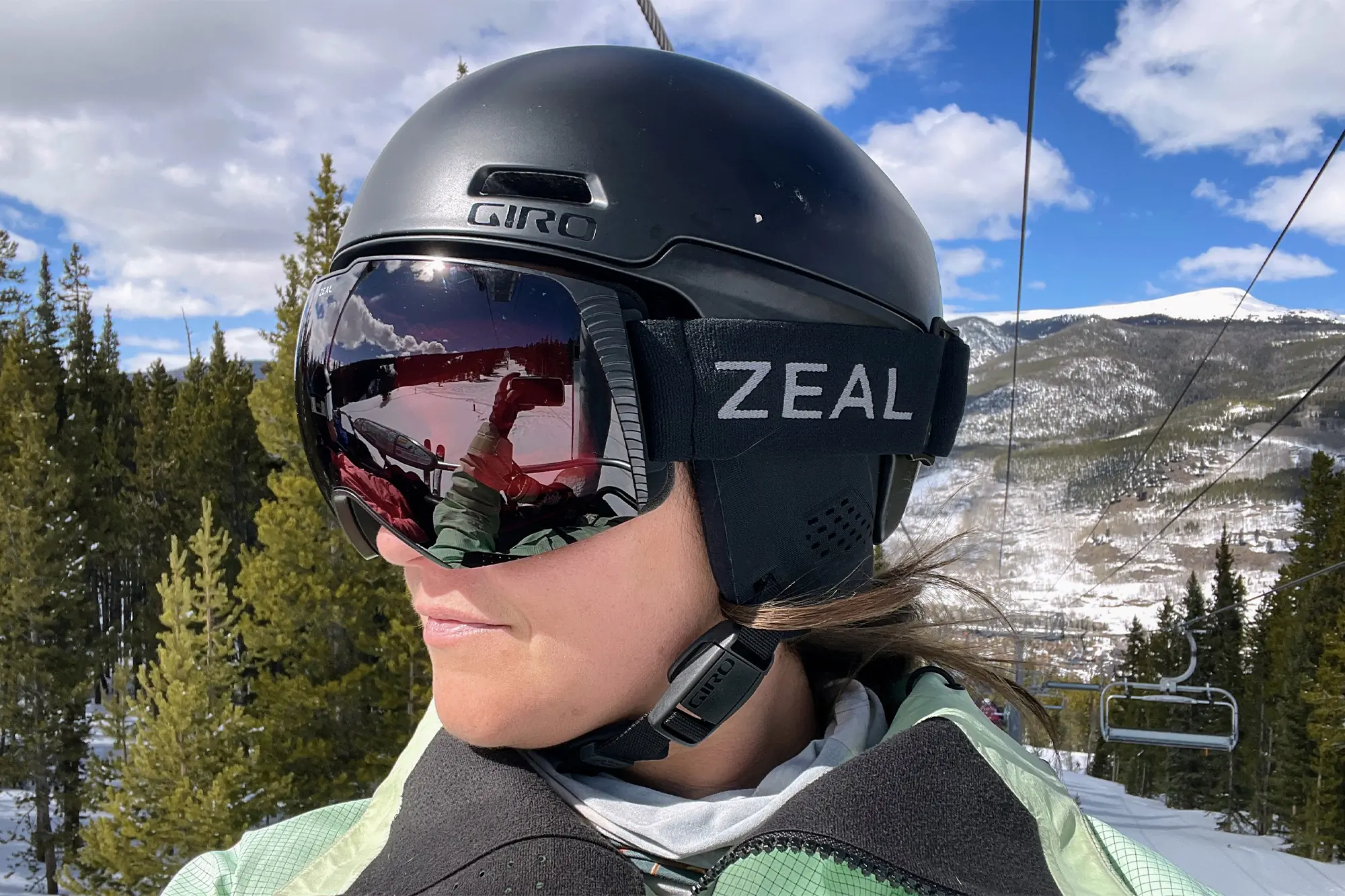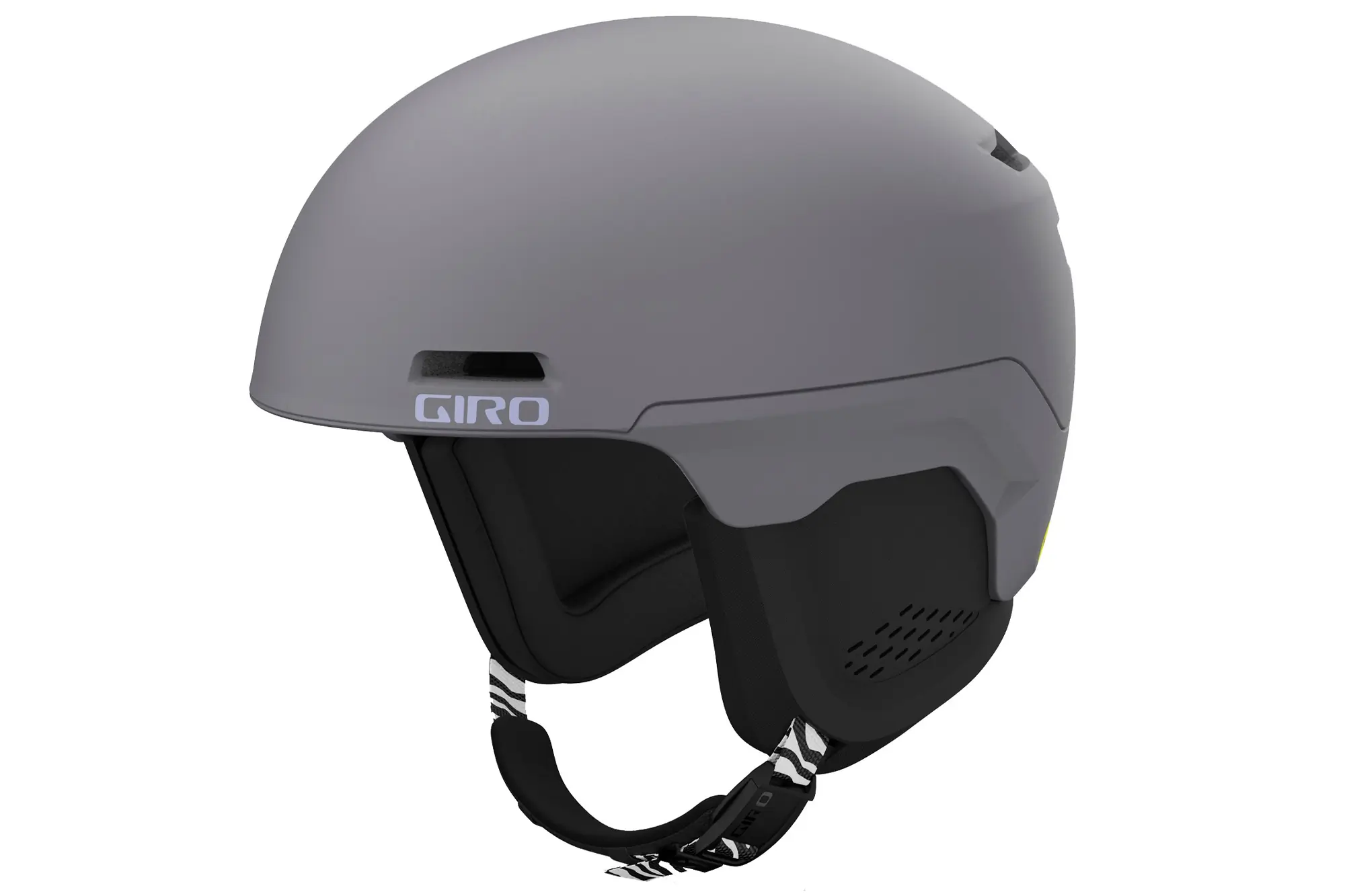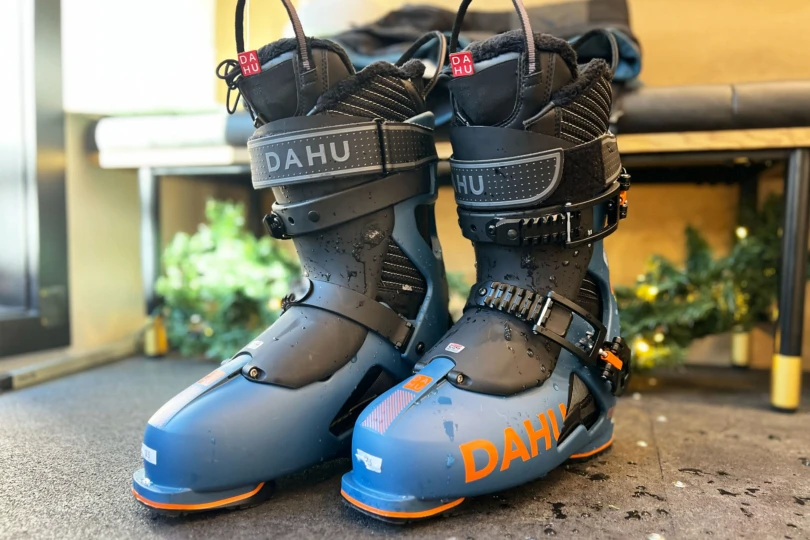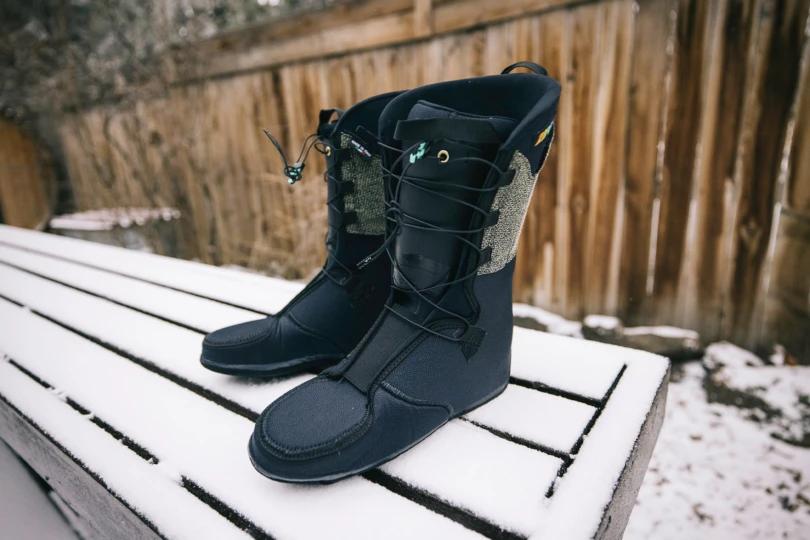It isn’t necessary to get the most expensive ski and snowboard helmet with all the best features. But you do need one that is comfortable enough for you to enjoy while you wear. New for the 23/24 season, the Giro Owen Spherical has yet to disappoint me in testing when it comes to a helmet that has zero pressure points or snags.
This sleek ski and snowboard helmet is no frills regarding style but offers top features like a smooth dial-fit system and a Fidlock buckle. It also incorporates MIPS Spherical, which is exclusive to Giro and Bell. Many ski helmets today incorporate MIPS, a sunshine-colored plastic liner that slips to help the helmet rotate and absorb energy during impact. But MIPS Spherical is an advanced iteration that has two layers of dual-density foam that rotate, replacing the integrated liner.
Most recently, MIPS Spherical was updated in 2020 to be lighter with a lower volume overall. Although I didn’t crash-test the helmet, I did wear it on multiple days in various weather conditions from snowy, windy midwinter days to spring corn laps. No matter the weather, the Owen kept my head at a comfortable temperature.
In short: The Giro Owen Spherical ($240) is a lightweight helmet with elite technology to keep your head safe. It does come at a steep price, but the features make it easy to use, warm, and comfortable packaged into a minimalist shell.
Check out our GearJunkie Ski Helmets buyer’s guide.
- Weight: 15.9 ounces
- Protection: MIPS Spherical
- Number of vents: 8 with adjustability
- Features: Fidlock magnetic buckle, dial-fit system, fleece liner
- Size range: S to M
- 10 color options:
Pros
- Extremely lightweight with a basic profile
- Easy-to-use Fidlock magnetic buckle
- Comfortable all-day wear
Cons
- You have to take your helmet off to adjust the vents
- Getting the ear pads off was nearly impossible
Giro Owen Spherical Helmet Review
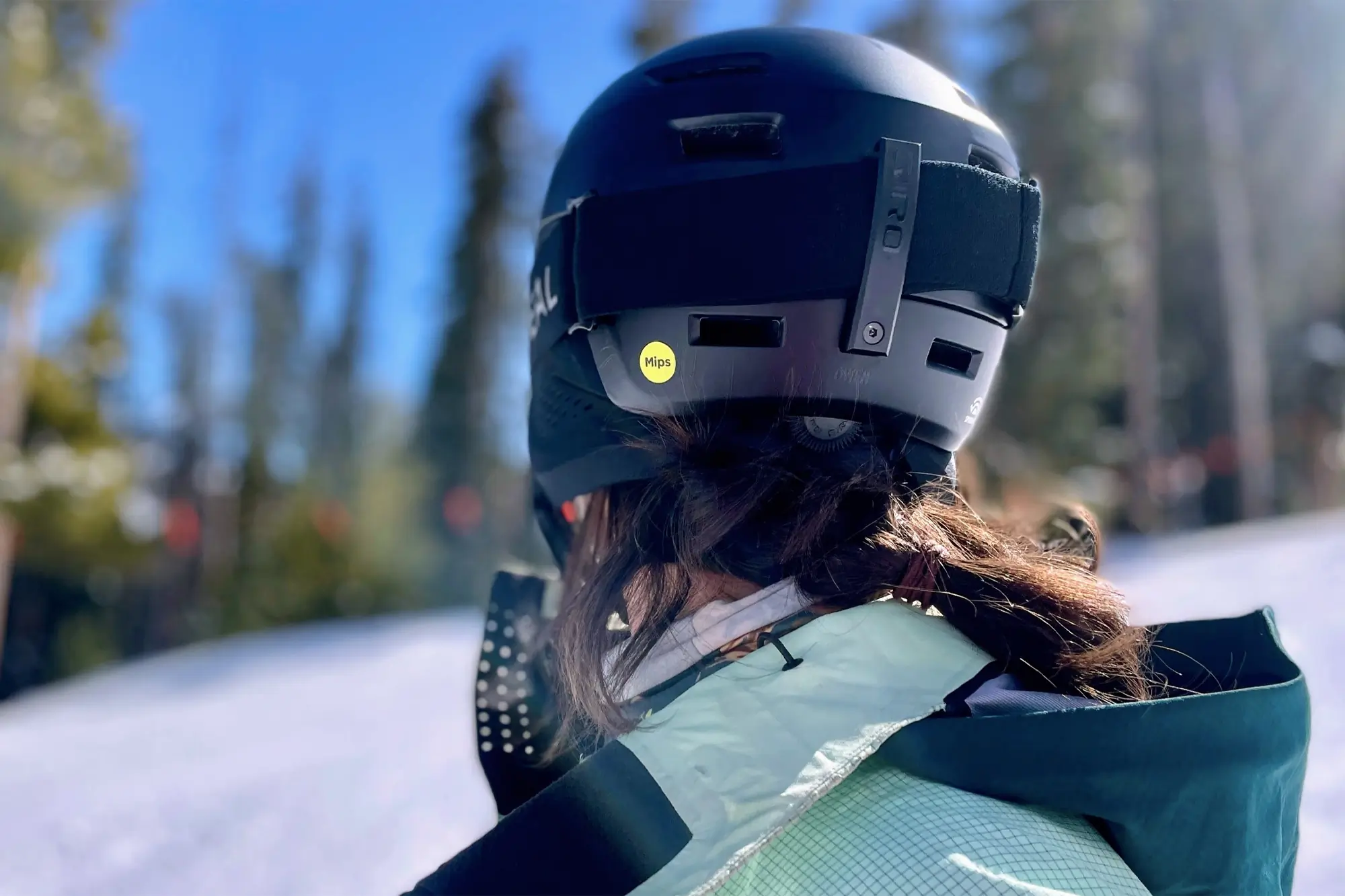
Out of the box, I could tell why the Giro Owen Spherical is touted as a minimalist ski helmet. It has a round shape without any brim. There are minimal vents and the majority of those ports in the back. And there are no aesthetic imprints or colors on the austere shell.
I wore this helmet while snowboarding inbounds at various Colorado ski resorts. I’ve been snowboarding for 20 years and have tested dozens of ski and snowboard helmets over the past decade. Although I thankfully haven’t crashed with any, I have become quite particular about what I prefer in a helmet for it to make my go-to list throughout the season.
Advanced Protection: MIPS Spherical Integrated Technology
In a word, the helmet looks pretty basic. But on the inside, it employs the proprietary MIPS Spherical technology for protection, which allows for the outer foam to rotate around the inner foam during a crash or impact. I could visually see this construction on the inside of the helmet. When I pushed on the spherical layer, the inner liner and fit system moved up and down and side to side in conjunction with that layer but independently from the shell — like a ball-and-socket.
MIPS Spherical is an advancement of MIPS. The spherical design is seamlessly integrated directly into the helmet’s construction, rather than added into the interior as an additional slip-liner like with MIPS. The Owen also meets the CE EN1077 impact rating standards, a European benchmark for helmets for skiing and snowboarding, which is telling.
Fit and Feel: Plush, Lightweight
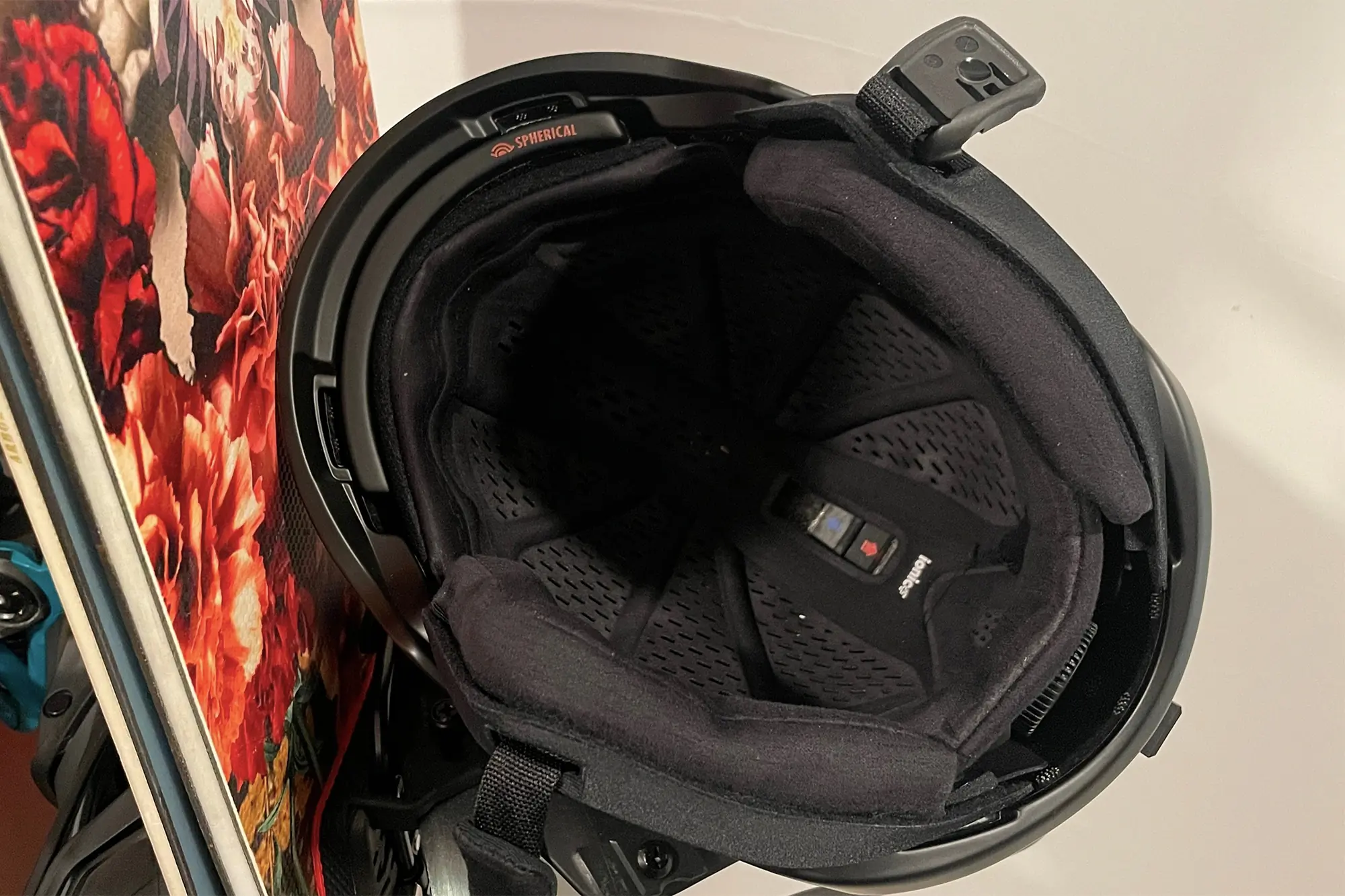



Beyond the shielding skeleton, the Giro Owen Spherical is a very lightweight helmet. It weighs just 15.9 ounces — lighter than many other helmets on the market — and feels like it, too. I got no headaches, hot spots, or neck aches even when riding bell-to-bell days. Also, I never felt any discomfort when checking my blind spots on mogul runs or when trails merged. When I did accidentally drop the helmet on concrete, there were no major dents or dings.
On the inside, the fleece liner is squishy and offers a plush feel when tightening the fit system. On some helmets, I’ve had wires or other pokey parts start to protrude if I had to dial down and cinch the helmet for a more secure fit. The liner is also removed easily and washed well.
Warmth, Breathability, and Vents
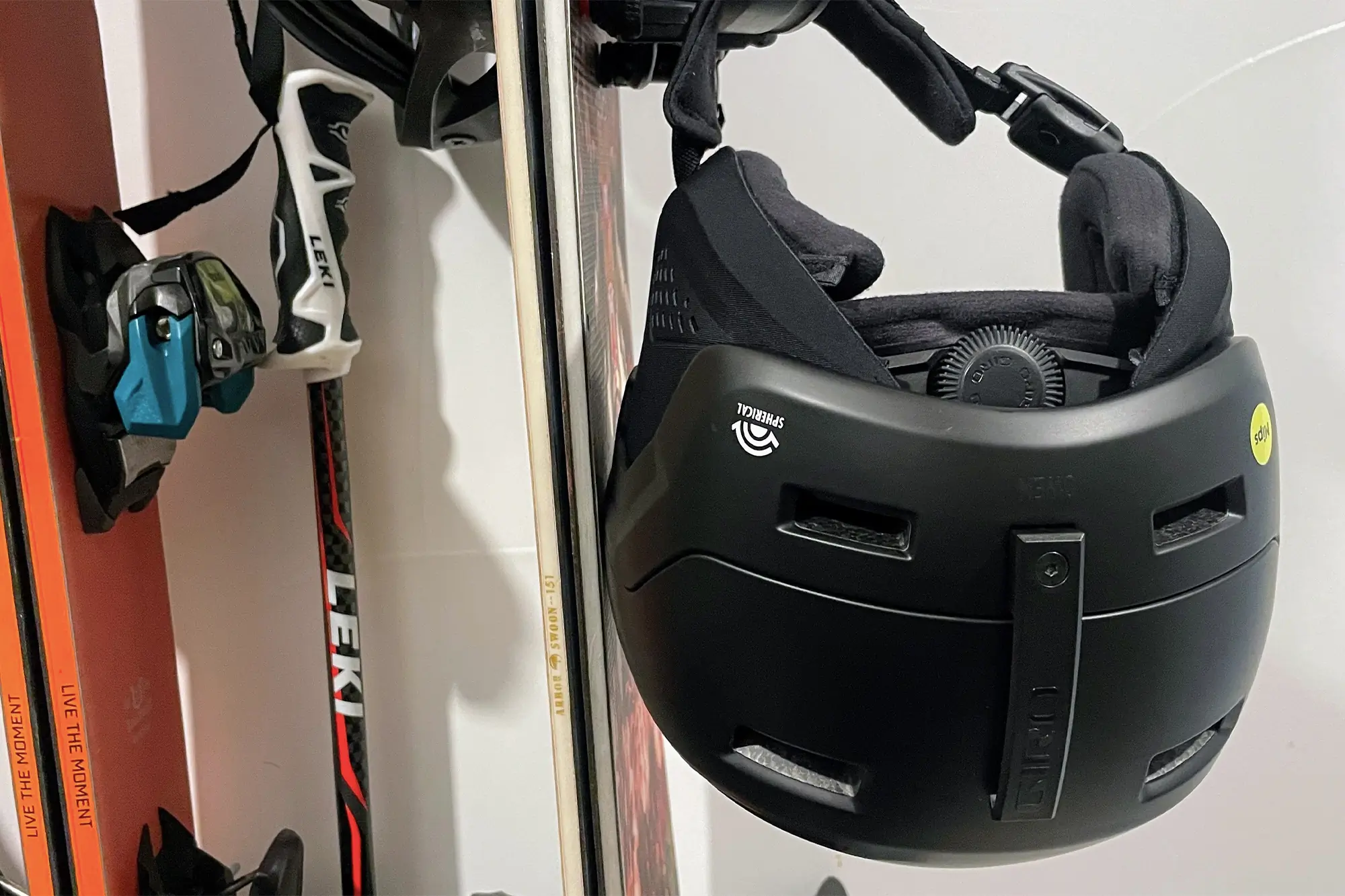



Overall, the warmth of this helmet was an excellent middle ground between not too hot and not too cold. I wore it on warm, spring-skiing days at Breckinridge Ski Resort when the sun was shining and temps were well into the 30s. I also pulled this armor on during windy, cloudy days at Eldora Mountain Ski Resort with temperatures in the teens.
The helmet has two vents in the front, which align with vents on the Giro goggles. There are six vents on the backside: two at the base of the head and four at the top back. The four near the top are adjustable.
Because the vents are minimal and only half are adjustable, I found the ventilation system to be good but only partially necessary. The two front vents don’t close, which is what I want when the wind blows into my face. The back vents were breathable on the hot, sunny days but could also close if my head was getting too cold on the lower-temp days.
My main gripe with the venting system is opening or closing the vents. The slider is inside the top of the helmet with no exterior toggle. So that’s great if I’m hot and want to remove my helmet and open the vents. But on the windy, blizzardy days? Taking my helmet off for even a few seconds to close the vents was not ideal.
Features: Goggle Compatibility, Buckle
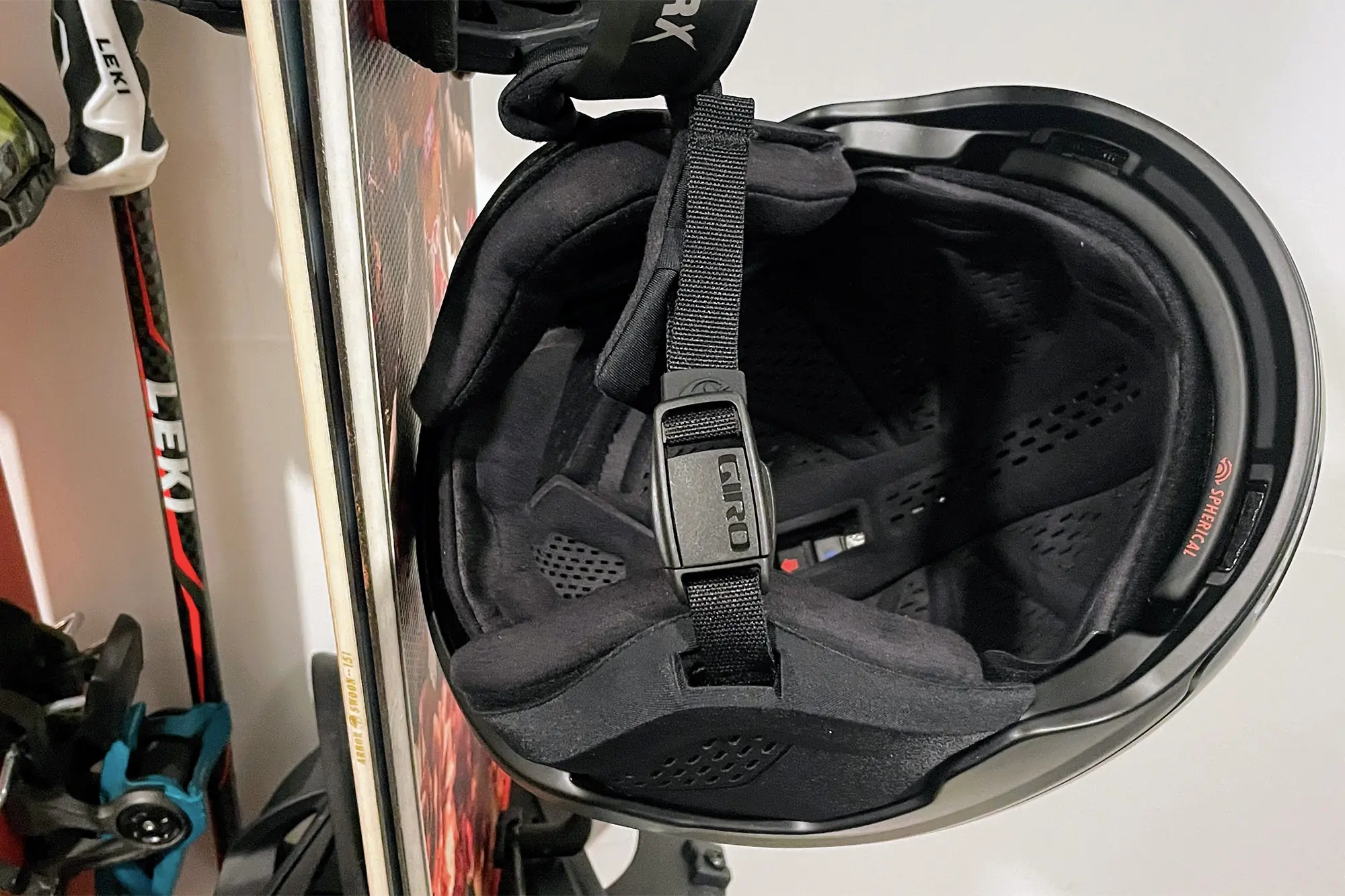



When considering goggle compatibility, I wore the helmet with four different models: Smith Squad Mag goggles, Giro Article II goggles, Zeal Cloudfall goggles, and Anon M4S. The Giro and Zeal ski goggles fit best with no gaper gap. The Smith goggles have a hard connector clip in the back of the goggle strap, making it hard to fit into the hard goggle clip on the helmet.
I always appreciate a Fidlock magnetic buckle, as I can get the helmet on and off without needing to take off my winter mittens. When testing this buckle and the fit dial, I wore the women’s Burton GORE-TEX Mittens and the women’s Baist Mitt. I could quickly and easily secure or release the chin clip. I could also smoothly use the fit system’s dial with just one thumb rather than my thumb and forefinger.
The goggle retainer is a fairly rigid clip that secures at the bottom with an opening at the top. To test if goggles would fall off completely, I put a pair on and shook them. This clip fared better than clips that open at the bottom (with those, goggles usually fall off within the first shake), but not as well as goggle retainers with a snap or bungee where goggles can’t fly off. For the Owen, the goggles fell off after a few hard shakes.
Critiques
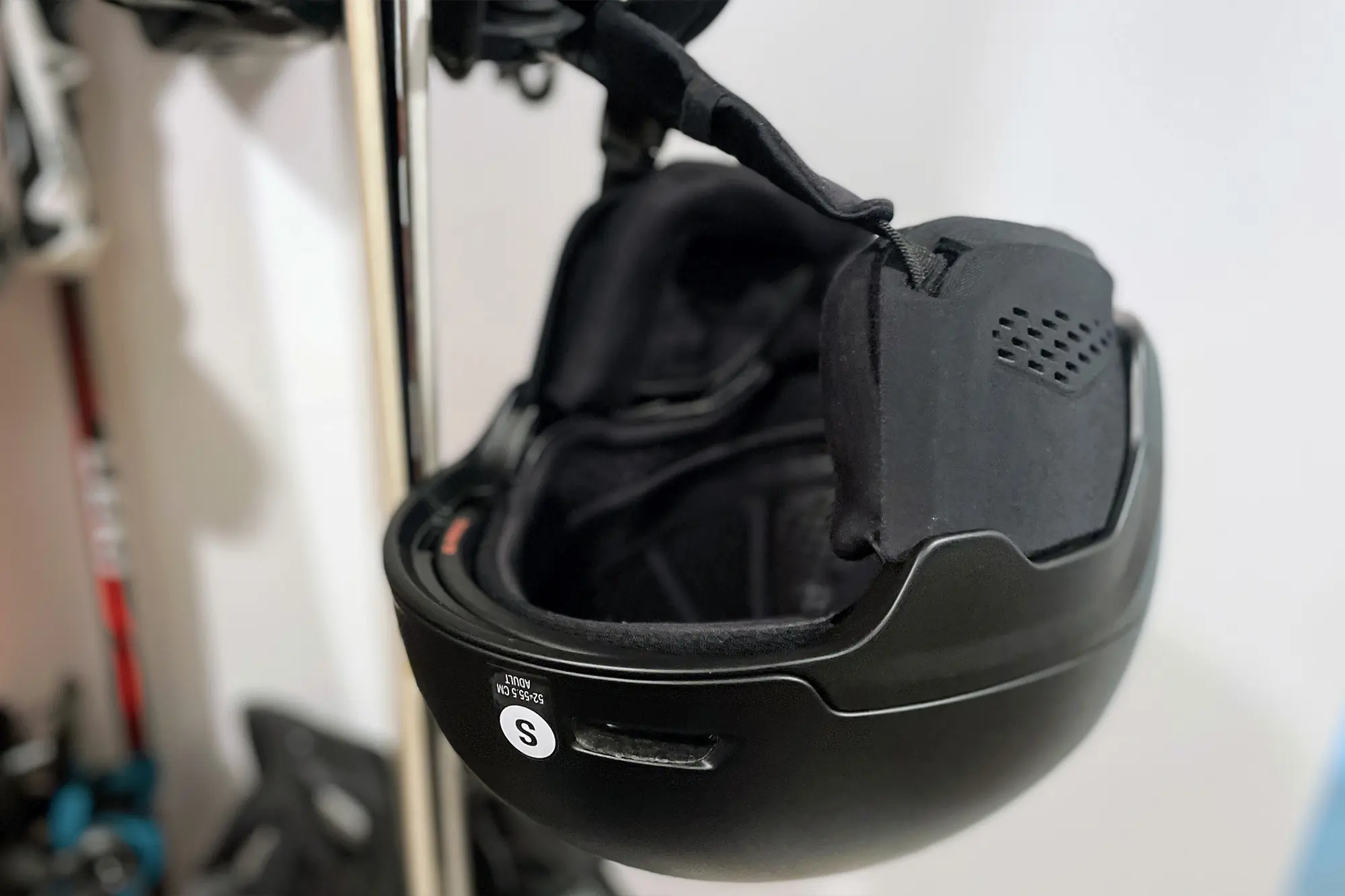



While the brand claims the ear pads are removable, we could only remove the soft, inner plush part via hook-and-loop closures. Getting the outer part off, which was a more rigid material, was impossible. We could not find instructions, reached out to the manufacturer for 3 weeks, and subsequently broke a set trying to remove them.
At this point, we determined the ear pads are fixed. It’s not a big deal, especially for riders in cold places, but you should plan ahead. And we hope that Giro updates its marketing materials to reflect this detail.
Also, the adjustable vents were not worth the hassle since they can only be opened and closed inside the helmet after removing the helmet altogether. I often use vents when I’m too cold, but I wouldn’t want to take my helmet entirely off in freezing, blizzardy weather, even if that means having a colder head. Plus, of the eight vents, only the four in the back are adjustable with an open-and-close option.
Giro Owen Spherical Helmet: Conclusion
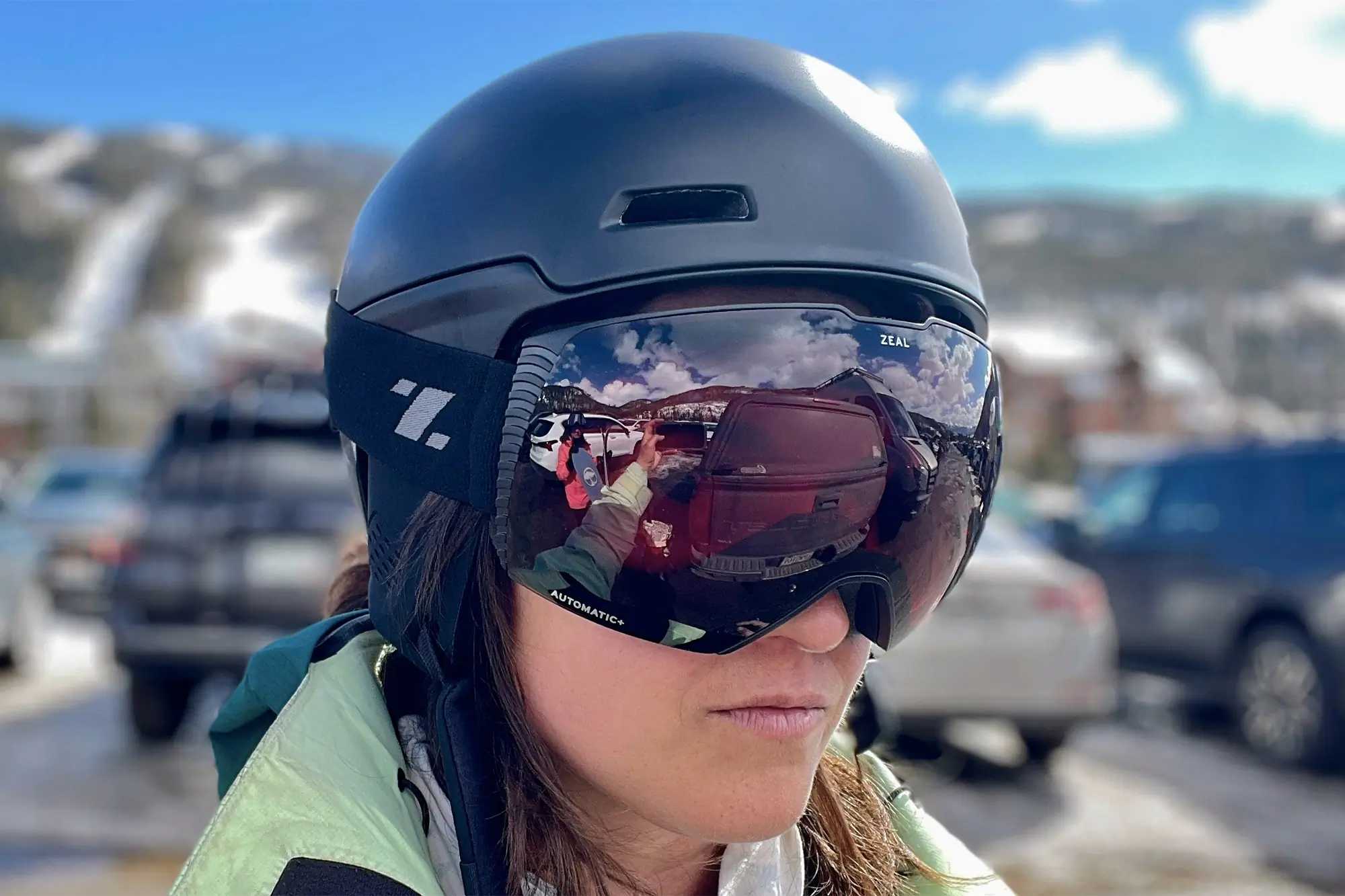



The Giro Owen Spherical is a solid choice if you want a streamlined, clean helmet with premium safety and several features that make it easy to use and comfortable for all-day wear — especially if you’re not riding in particularly stormy weather that would entice you to close the adjustable vents. The design utilizes MIPS Spherical for protection, and that fully integrated version of MIPS is built into the helmet.
This helmet’s design is extremely polished and minimal, which is matched with a low weight of just 15.9 ounces. Part of this refinement is that there aren’t any extra visual details or sliders on top that change the vents. Instead, the vent slider is inside the helmet.
Although this does make the helmet look a bit more sophisticated, that also means you have to take off the helmet to adjust the vents. If you change up your vents often, the inner slider — that’s used to open and close the four back vents — will likely not be your ideal system.
All the other components were effortless to use like the Fidlock magnetic buckle, fit dial, and goggle retainer. If you’re looking for a sleek, no-frills helmet that uses top protection and offers a plush, zero-pain-point interior liner, opt for the Giro Owen Spherical.
